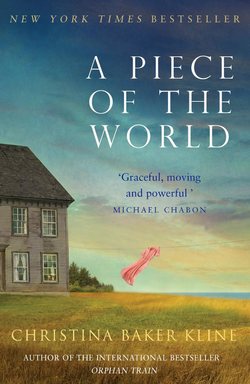Читать книгу A Piece of the World - Christina Kline Baker - Страница 8
PROLOGUE
ОглавлениеLATER HE TOLD ME HE’D BEEN AFRAID TO SHOW ME THE PAINTING. He thought I wouldn’t like the way he portrayed me: dragging myself across the field, fingers clutching dirt, my legs twisted behind. The arid moonscape of wheatgrass and timothy. That dilapidated house in the distance, looming up like a secret that won’t stay hidden. Faraway windows, opaque and unreadable. Ruts in the spiky grass made by an invisible vehicle, leading nowhere. Dishwater sky.
People think the painting is a portrait, but it isn’t. Not really. He wasn’t even in the field; he conjured it from a room in the house, an entirely different angle. He removed rocks and trees and outbuildings. The scale of the barn is wrong. And I am not that frail young thing, but a middle-aged spinster. It’s not my body, really, and maybe not even my head.
He did get one thing right: Sometimes a sanctuary, sometimes a prison, that house on the hill has always been my home. I’ve spent my life yearning toward it, wanting to escape it, paralyzed by its hold on me. (There are many ways to be crippled, I’ve learned over the years, many forms of paralysis.) My ancestors fled to Maine from Salem, but like anyone who tries to run away from the past, they brought it with them. Something inexorable seeds itself in the place of your origin. You can never escape the bonds of family history, no matter how far you travel. And the skeleton of a house can carry in its bones the marrow of all that came before.
Who are you, Christina Olson? he asked me once.
Nobody had ever asked me that. I had to think about it for a while.
If you really want to know me, I said, we’ll have to start with the witches. And then the drowned boys. The shells from distant lands, a whole room full of them. The Swedish sailor marooned in ice. I’ll need to tell you about the false smiles of the Harvard man and the hand-wringing of those brilliant Boston doctors, the dory in the haymow and the wheelchair in the sea.
And eventually—though neither of us knew it yet—we’d end up here, in this place, within and without the world of the painting.
